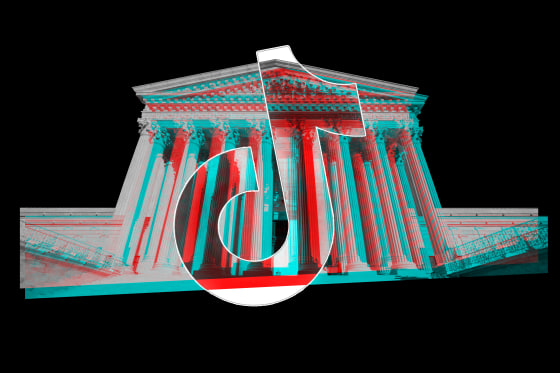
Washington The Supreme Court will hear arguments on Friday over whether to reject a bill that would likely outlaw the social networking app TikTok in the US.
At least a preliminary ruling is expected in the coming days, if not hours, after the nine justices on the conservative-majority court hear oral arguments from attorneys representing TikTok, some of its users, and the Biden administration.
Enacted with widespread bipartisan support, the law mandates that ByteDance, the owner of TikTok, which is based in China, sell out its stake in the company by January 19, the day before President-elect Donald Trump takes office. The platform that millions of Americans utilize would be prohibited if no sale occurred.
TikTok and a few of its users filed a lawsuit to have the measure blocked, claiming it infringed upon their First Amendment rights to free speech.
Because of worries that the Chinese government would have influence over the platform, the court will be considering those arguments against the government’s justification of the statute on national security grounds.
The court might swiftly issue an order stating whether it will temporarily halt the bill before rendering a definitive decision on the free expression issue, which would add even more complexity.
The political history of the case is complex and tense.
Despite the fact that the ban was signed into law by President Joe Biden and passed by Congress with bipartisan support, Trump has changed his mind on the matter. He promised to outlaw TikTok during his first term in office, but he later declared his support for the app during the election campaign, pointing to his own popularity on the app. He recently met the CEO of the company.
In order to pursue a political settlement of the conflict when he takes office, Trump filed an unprecedented brief with the Supreme Court, requesting that the justices temporarily stop the statute.
The statute contains a clause that permits the president to provide a one-time extension of ninety days in the event that he finds a way to divest and that there has been substantial progress in carrying it out. No indications have been made to the public that such a sale is likely. A group led by billionaire Frank McCourt said on Thursday that it was making an offer.
TikTok, eight individual users, and the conservative TikTok group Based Politics Inc. all filed separate challenges, claiming the law infringes on their right to free speech.
Despite concluding that the law did implicate the First Amendment and required a thorough analysis, the U.S. Court of Appeals for the District of Columbia Circuit affirmed it.
The three-judge panel came to the conclusion that the law was carefully tailored to achieve a compelling government interest.
The government’s national security arguments, such as worries that the Chinese government would obtain user data on Americans and perhaps alter app content, were upheld by the appeals court.
In legal documents submitted to the Supreme legal, TikTok’s attorneys contended that although Congress has a legitimate interest in preserving national security, stifling American speech is not one of the options available since other Americans might be convinced. They stated that the government made no effort to address its national security issues in a way that would not infringe upon the right to free speech.
A diverse range of public interest organizations, including the libertarian Cato Institute and the left-leaning American Civil Liberties Union, have entered the battle on TikTok’s behalf in the court on the basis of free speech.
Just days before her departure, Solicitor General Elizabeth Prelogar is tasked with upholding the law.
She claimed in court documents that the law does not even violate the First Amendment and that the proposed ban would address the significant national security risks posed by the Chinese government’s control over TikTok, a platform that collects private information about tens of millions of Americans and would be a powerful instrument for a foreign adversary to use for covert influence operations.
She said that rather than restricting speech, the legislation keeps an enemy from another country from doing so.
“The restrictions are not focused on suppressing specific speech based on what is being said or who is saying it,” Prelogar said, so even if there are free speech problems, they are small.
Montana and 21 other states, together with retired national security officials, support the federal government.
Since its 2018 introduction in the US, TikTok has grown in popularity, with 170 million users as of right now.
Users receive streams of short-form video content from the algorithm, which adapts to their interests.
